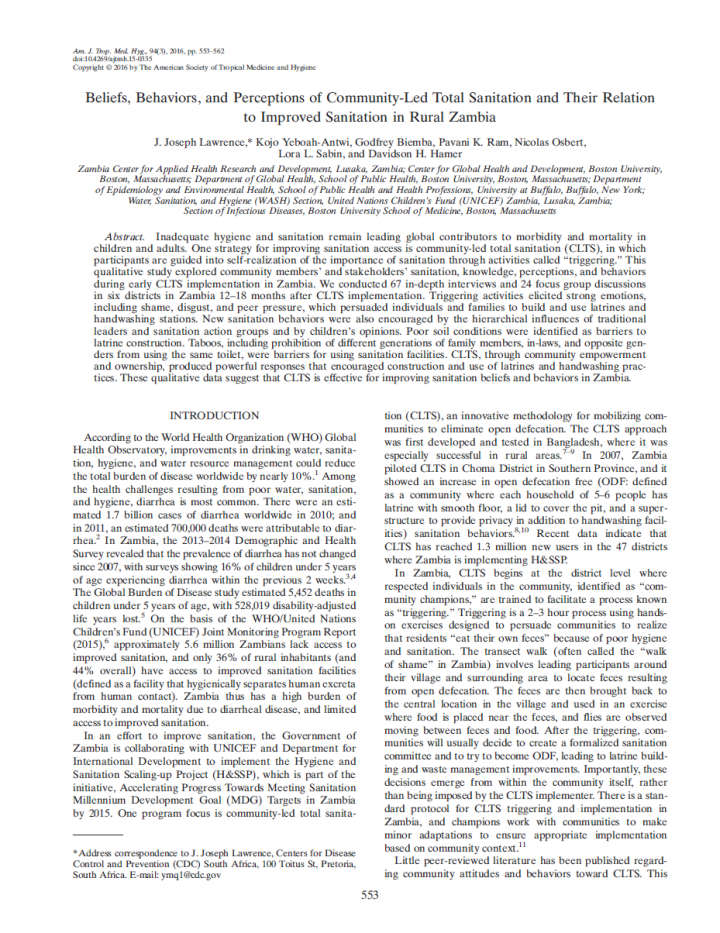Beliefs, Behaviors, and Perceptions of Community-Led Total Sanitation and Their Relation to Improved Sanitation in Rural Zambia Lawrence, J. J., Yeboah-Antwi, K., Biemba, G., Ram, P. K., Osbert, N., Sabin, L. L., Hamer, D. H. (2016)
Inadequate hygiene and sanitation remain leading global contributors to morbidity and mortality in children and adults. One strategy for improving sanitation access is community-led total sanitation (CLTS), in which participants are guided into self-realization of the importance of sanitation through activities called “triggering.” This qualitative study explored community members' and stakeholders' sanitation, knowledge, perceptions, and behaviors during early CLTS implementation in Zambia. We conducted 67 in-depth interviews and 24 focus group discussions in six districts in Zambia 12–18 months after CLTS implementation. Triggering activities elicited strong emotions, including shame, disgust, and peer pressure, which persuaded individuals and families to build and use latrines and handwashing stations. New sanitation behaviors were also encouraged by the hierarchical influences of traditional leaders and sanitation action groups and by children's opinions. Poor soil conditions were identified as barriers to latrine construction. Taboos, including prohibition of different generations of family members, in-laws, and opposite genders from using the same toilet, were barriers for using sanitation facilities. CLTS, through community empowerment and ownership, produced powerful responses that encouraged construction and use of latrines and handwashing practices. These qualitative data suggest that CLTS is effective for improving sanitation beliefs and behaviors in Zambia.
Bibliographic information
Lawrence, J. J., Yeboah-Antwi, K., Biemba, G., Ram, P. K., Osbert, N., Sabin, L. L., Hamer, D. H. (2016). Beliefs, Behaviors, and Perceptions of Community-Led Total Sanitation and Their Relation to Improved Sanitation in Rural Zambia
Filter / Tags
English
Downloads
Beliefs, Behaviors, and Perceptions of Community-Led Total Sanitation and Their Relation to Improved Sanitation in Rural Zambia
Type: application/pdf
Size: 0.65 MB

